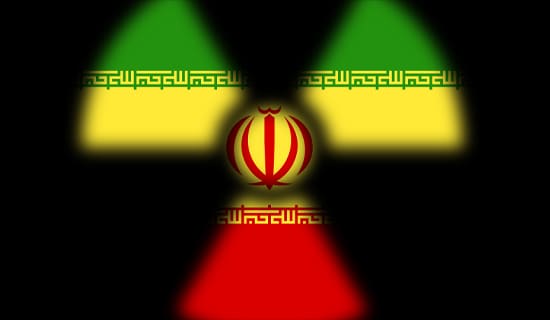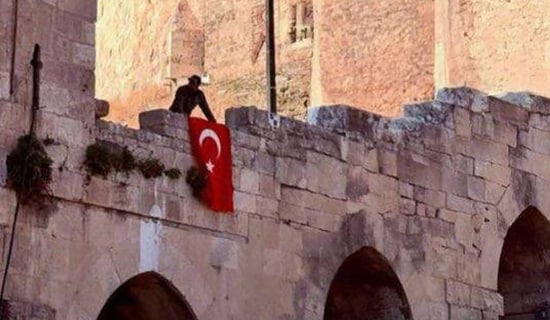Ivan Timofeev, Program Director of the Valdai Discussion Club, Director of Programs of the Russian International Affairs Council (RIAC), and Associate Professor at MGIMO University assesses the war scare triggered by Russian troop concentrations on Ukraine's border. To judge by rational calculations, Russia is unlikely to launch a military invasion as the potential economic and diplomatic costs far outweigh the hypothetical gains. Many things can go wrong, and a splendid little war could morph into a meatgrinder that would claim many Russian casualties. The combination of economic sanctions and heavy casualties could even destabilize the Putin regime.
Any logical calculus would rule out actual war, but all sides benefit from the threat of war. Ukraine consolidates its identity and obtains massive military assistance; Russia uses the threat to signal the West on its "red lines". Unfortunately, history has shown that such posturing can plunge the sides into war even if this is unintended.
Timofeev's analysis follows below:[1]

Russian troops near border with Ukraine (Source: Pravda.com.ua)
"There is growing concern about Russian military activity in the southwest in the foreign press. Opinions are voiced that Russia is preparing a military campaign against Ukraine. Its presumed purpose is escape from the Minsk agreements stalemate, to impose conditions for further coexistence [with Russia] on Kiev and its Western partners, to prevent the 'exploitation' of Ukrainian territory for military purposes by the US and NATO, and, possibly, to reformat the political system of the country and its state structure. Such rumors are spreading fast, causing anxiety among the political leaderships of foreign countries and hidden, but quite palpable fears in the business community. However, it is premature to perceive such a development as a baseline scenario.
"There are several circumstances favoring the military scenario identified by foreign commentators:
"The first circumstance is the recent history involving the use of Russian military forces and the political consequences of such act. Moscow intervened in Georgia's conflict with Abkhazia and South Ossetia back in 2008, quickly altering the situation and recognizing the two autonomies as independent countries.
"In 2014, Russia conducted a lightning-speed operation in Crimea, setting the stage for a future subsequent referendum [on the peninsula's] accession [to Russia}. Later the Ukrainian army was defeated in Donbass, and the LPR and DPR were established as the political consequence.
"In 2015, Moscow radically changed the military situation in Syria by deploying a compact but highly effective air group. As a political consequence, Bashar al-Assad's government was able to retain power, while a number of terrorist groups were eliminated. All these instances demonstrate that Russia is ready to use force suddenly, in a focused manner, while achieving actual political changes.
"The second circumstance is that the international political consequences of the campaigns conducted by Russia were relatively easy for the country. Not a single foreign state has openly intervened in the conflicts. Foreign military assistance to [the countries impacted] didn't radically change the balance of power. Economic sanctions in their current form are detrimental to Russia's economy, but are still not the main factor in the existing problems. The Russian economy is stable. In brief, there are no serious deterrents to a new military campaign.
"The third circumstance is that Russia is not ready to accept the status quo in relations with Ukraine. Kiev almost openly talks about sabotaging the Minsk agreements and is unready to fulfill them. The US and the EU are unable or unwilling to change this policy, while verbally urging Russia to implement the agreements. In turn Ukraine, since 2014 has been following an anti-Russian policy for obvious reasons. The events of 2014 greatly strengthened the position of the nationalists. Any attempts at political dialogue with Russia are unacceptable [in Ukraine]. Politicians, who demonstrate even remote loyalty to Russia are being 'purged'].
"Ukraine, being militarily weak and fearing new complications with Moscow, seeks to deepen defense ties with the US and its allies. In addition, the country strives to broaden military assistance and supplies with them. Moscow perceives such events as the "exploitation" of Ukrainian territory by Western countries, to be followed with the threats in the strategic perspective. As it seems, the emergence of Western military infrastructure in Ukraine is considered in Russia to be only a matter of time.
"With regard to aforementioned circumstances, the West and Ukraine might have the following idea of the hypothetical scenario of Russian actions: with an unexpected and bold strike on several fronts at once, Russian troops divide the Armed Forces of Ukraine [ZSU] deployed in the east of the country, encircle separate groupings or push them to the Dnieper River; the actions of tank and motorized rifle formations are followed by powerful strikes by aviation, missile units and artillery; the Russian Air Force gains air superiority; the apotheosis of the operation is the encirclement, and the subsequent seizure of Kiev, as well as stabilization of the front along the Dnieper River. Later the establishment of a new Ukrainian state with Kiev as its capital is announced. The new state will be recognized by Russia, while the previously independent DPR and LPR join the new country.
"[By this operation] Russia will solve several historical tasks at once: a direct threat to the country's southwestern borders will be eliminated; full control of the Sea of Azov and a land corridor to the Republic of Crimea will be ensured; and two Ukrainian states will appear on the map, one of which is "friendly and fraternal." [The other state will be situated in the western Ukraine].
"Such a scenario could be considered an amalgamation of existing phobias and nationalist complexes [of Ukraine]. However, it still seems unlikely for an entire series of reasons:
"First, it's unlikely that such a military conflict can conclude in any sort of comprehensive agreement. Victory over the ZSU per se won't lead to quick peace. The war could degenerate into a lengthy and low-intensity confrontation, especially if part of the territory (for example, western Ukraine) remains under the control of the ZSU. It's practically possible to seize all of Ukraine, however, such action would be more costly and the subsequent control would be much more difficult. In the "two Ukrainian states" scenario, it is possible to push the nationalists to the west. In the "single Ukrainian state" scenario, this would be impossible, with all the ensuing consequences.
"Second, the conflict will inevitably lead to a dramatic change in the policy of supplying Ukraine with modern weapons and military equipment. In the US and the West as a whole, the new situation will be perceived as an emergency and they would spare no resources to supply the ZSU. Meanwhile, all possible types of conventional weapons will be supplied to the country. Large-scale military assistance provided by the West will prolong the conflict. Russia won't be able to stop such supplies. The US and its allies won't engage in direct military confrontation with Moscow. But the level of support for the Ukrainian army will increase manifold.
"Third, regarding the Ukrainian issue, Russia will find itself in diplomatic isolation. It is unlikely that there will be even one country that will support Moscow's actions. In contrast to Crimea and Donbass, there will be a large-scale and direct confrontation of armed forces of the two states, in other words, there will be a full-fledged war. There is no doubt that Russia will be the offensive party in this war. This will allow, without any problems, to classify our actions as aggression. If the situation in Crimea and Donbass, which took place at the background of revolutionary events in Ukraine and could be considered part of the civil conflict, such conditions, in this scenario, are undiscernible. Now, there is no acute conflict between the east and west of Ukraine. In such a case, the legitimacy of Moscow's actions will be quite flimsy (if at all). Additionally, Russia would have to bear responsibility for the civilian casualties that are inevitable in a large-scale conflict.
"Fourth, all the key Western players will impose qualitatively new sanctions restriction on Russia. They will damage a number of Western countries and cause temporary shocks in the global markets. But in an emergency situation, the West will use such measures, regardless of their economic cost. Possible measures include: blocking sanctions against all Russian banks, including the Bank of Russia, which will effectively cut Russia off from the global financial system; a ban on the purchase of Russian oil, which will be followed by similar ban on natural gas. Such restrictions could be expanded gradually in order to avoid fuel supply crises in the West itself. However, in case of war in Ukraine, they could be imposed. Other sanctions, more focused on import and export could follow the oil and gas bans. The cumulative damage to Russia's economy would be enormous.
"Fifth, controlling even over eastern Ukraine could prove problematic. Given the Western sanctions blockade, concluding any contracts [with companies registered at] Ukrainian territories under Russian control would be impossible. Russia would have to assume responsibility for a huge territory. The big question is whether the Russian market, boxed in by the new sanctions, will be able to offset the damage caused by the Ukrainian territories under Russian control. Seizure of the territories won't solve any of the problems that the Russian economy faces today.
"Sixth, the loyalty of eastern Ukraine's population to Russia is uncertain. Despite all internal disagreements, a civic identity of its own has developed in Ukraine over the past 30 years. The population of the country's eastern regions may have a negative attitude towards excessive nationalism. However, this fact doesn't guarantee loyalty to Russia. What's more, the war may conclusivesly undermine sympathies for Russia, which have already diminished over the past 6 years.
"Seventh, a war carries the risk of destabilization within Russia itself. There is no public demand for war with a neighboring state, even though the anti-Russian discourse in Ukraine is odious. It is quite possible for Russian troops to inflict perceptible damage to the ZSU and push their troops to the West. But [Russian] casualties will still be in the hundreds, and possibly thousands, of soldiers. In the likely case of prolonged conflict, casualties will be a constant factor. Combined with a possible economic crisis, this doesn't constitute optimal conditions for public support. While the reunification with Crimea was for many reasons enthusiastically received in Russian society, a major war is unlikely to find such support.
"In other words, the costs of a possible war significantly outweigh the gains. War carries significant risks for Russia's economy, political stability, and foreign policy. It won't be able to solve key security problems, while at the same time creating many new ones.
"Thus, a question appears, who and under what conditions would benefit from the propagation of such a scenario? First of all, it is attractive as a hypothetical rather than a real situation. In this form, the scenario allows for Ukraine's consolidation based on an anti-Russian base and for obtaining of increased Western military assistance. In turn, for the West it will justify such assistance.
"The Russian side can too take advantage of the threat of war and a demonstration of military power. Moscow conveys that it is technically ready for a radical scenario and won't allow its "red lines" to be crossed. The resolution of the Donbass problem by force is among such "red lines." In other words, the scenario makes practical sense as a tool of information combat and conveying political signals.
"In terms of the balance of gains and losses, neither side is interested in an actual war. Therefore, it is hardly necessary to consider the war scenario as a baseline. However, history knows many examples of how rational considerations failed to stop escalation. One can only hope that this is not our case."

Ivan Timofeyev (Source: Interaffairs.ru)
[1] Valdaiclub.com, November 25, 2021.








